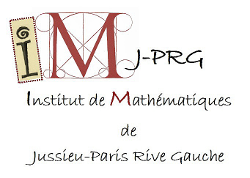| Résume | he classical De Finetti Theorem (1937) states that an exchangeable collection of random variables is a mixture of Bernoulli sequences. Markov measures with full support and, more generally, Gibbs measures, on the space of binary sequences
are easily seen to be quasi-invariant under the natural action of the infinite symmetric group.
The first result of the talk is that determinantal point processes on Z induced by integrable kernels are also quasi-invariant under the action of the infinite symmetric group. A key example is the discrete sine-process of Borodin, Okounkov and Olshanski.
The Radon-Nikodym derivative is a regularized multiplicative functional on the space of configurations.
The formula for the Radon-Nikodym derivative can be seen as the analogue of the Gibbs property for our processes.
The discrete sine-process is very different from a Gibbs measure: for example, the rigidity theorem of Ghosh and Peres shows that the number of particles in a bounded interval is almost surely determined by the configuration outseide the interval.
The quasi-invariance can then informally be understood as the statement that there are no other invariants except the number of particles.
The second result is a continuous counterpart of the first: namely, it is proved that determinantal point processes with integrable kernels on R, a class that includes processes arising in random matrix theory such as Dyson's sine-process, or the processes with the Bessel kernel or the Airy kernel studied by Tracy and Widom, are quasi-invariant under the action of the group of diffeomorphisms of the line with compact support (rigidity for the sine-process has been established by Ghosh, for the Airy and the Bessel by the speaker).
While no analogues of these results in higher dimensions are known, in joint work with Yanqi Qiu it is shown that for determinantal point processes corresponding to Hilbert spaces of holomorphic functions on the complex plane C
or on the unit disk D, the quasi-invariance under the action of the group of diffeomorphisms with compact support also holds.
Quasi-symmetry theorems have an analogue also for determinantal point processes governed by J-Hermitian kernels, such as, for example, the Whittaker kernel: in joint work with Yanqi Qiu it is shown that adding a particle in one half of the phase space is equivalent to removing a particle in the other half. This can be seen as a manifestation, in the continuous case, of particle-hole duality. |

